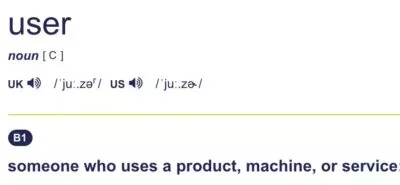26 May 2022
How do we shift from ‘user research’ to ‘systems research’?
Users aren’t the only stakeholders we should be considering when developing our products and services. Various designers and researchers are beginning to talk about the importance of non-users as well. Why is this?
-
Nicola Pritchard
Principal Service Designer

This is part of a series examining our evolution toward a more holistic research and design practice.

For decades our industry has been obsessed with designing for the user. It was a positive, logical and obvious step to take, considering that before user research existed, most of what we used was designed in a vacuum, by those who assumed they knew what people would want, and made things for them, with no guarantee of success.
Over time user research has been recognised as an essential organisational practice and has become non-negotiable.
Designing with, and not for users is not only better for organisations, but it’s fairer too (provided people are rewarded fairly for their contribution, and their inputs result in genuine service/product changes from which they get to benefit).
But users aren’t the only stakeholders we should be considering. Various designers and researchers are beginning to talk about the importance of non-users as well. Why is this?
We have come to recognise that many of the products and services we use every day are made possible through unsustainable practices. The organisations behind these practices impact all of our lives – whether we buy their products and use their services, or not. They impact the quality of our air, the richness of our soils, the fairness of our pay, the cleanliness of our seas, and the state of our health.
So when an organisation creates a service, is it reasonable and equitable that the users alone, the people who get to enjoy the immediate benefit of their outputs, should be the only ones that are involved? What about the people way upstream making and building the servers upon which our organisation’s products rely? What about the people living next to the data warehouse that was developed on their local greenfield? What about the people whose air quality is directly affected by the energy it relies upon?
These are the non-users, the people whose lives are affected by the collateral effects of what we design. As researchers and designers, we have an opportunity to challenge the way we think about the concept of the user. All of us are users (direct or indirect) of the things that impact our quality of life, it’s just that some of us benefit from those impacts and some of us don’t. And typically when we’re engaging in user research we’re almost always exclusively talking to the people who do actually benefit from what we design.
As researchers, can we still justify calling ourselves user researchers, and in the same breath, talk about ourselves as inclusive, robust in our methods, designing with and for all the people who have a stake in the things we’re influencing, without becoming non-user researchers as well?
There’s a case to be made for a new kind of systems researcher
The person whose job it is to look at the negative space on a project: who are the people we’ve not considered here? Who are the silent stakeholders who absolutely deserve a say in if or how this thing is built? This systems researcher takes both users and non-users into consideration. They balance the benefits with the impacts of what we make. They look backwards at what went into it, forwards at what might come out of it, and they seek input from people who might represent this wider system view.
The challenges in doing this are quite big. When it comes to budgets, how might we encourage stakeholders to invest in understanding the system/context within which their products and services operate? When we think about access – where do we begin to access and distil the perspectives of non-users? And finally measurement – how do we start understanding the effect of our actions through robust measures?
To overcome these challenges, we need to work with stakeholders to think more broadly and set clear intent around the impact we want to have in our projects. This begins with how we scope and mobilise. Introducing expansive exercises, such as actor mapping, impact mapping, and consequence scanning (and inviting users and non-users into these processes). Creating team social contracts that bind our core beliefs and values. Using creative stimuli that remind us of our purpose as humans, not just as project managers, researchers and account leads.
Secondly, we need to continue developing our skills and competencies as systems researchers. This might involve growing specific skills for seeing and engaging with wider systems, but also challenging our perspectives on the perceived core competencies of a researcher. Given the scale of what’s ahead, we need to bolster our empathy and curiosity with more tenacity, resourcefulness and determination than before.
In order to start to tackle and reverse the impact of the things we research and design, we need to be able to see into the system in which the product or service lives. We need to set clear intent around what we think we can achieve and we need to continue to actively develop our own skills and competencies to meet these challenges head on. All this is stuff we’re experimenting with internally across our projects and organisational targets. It’s unlikely that non-user research should or could ever count as much as researching with users, but we must make a much bigger space for it than exists in our usual research mix today.



